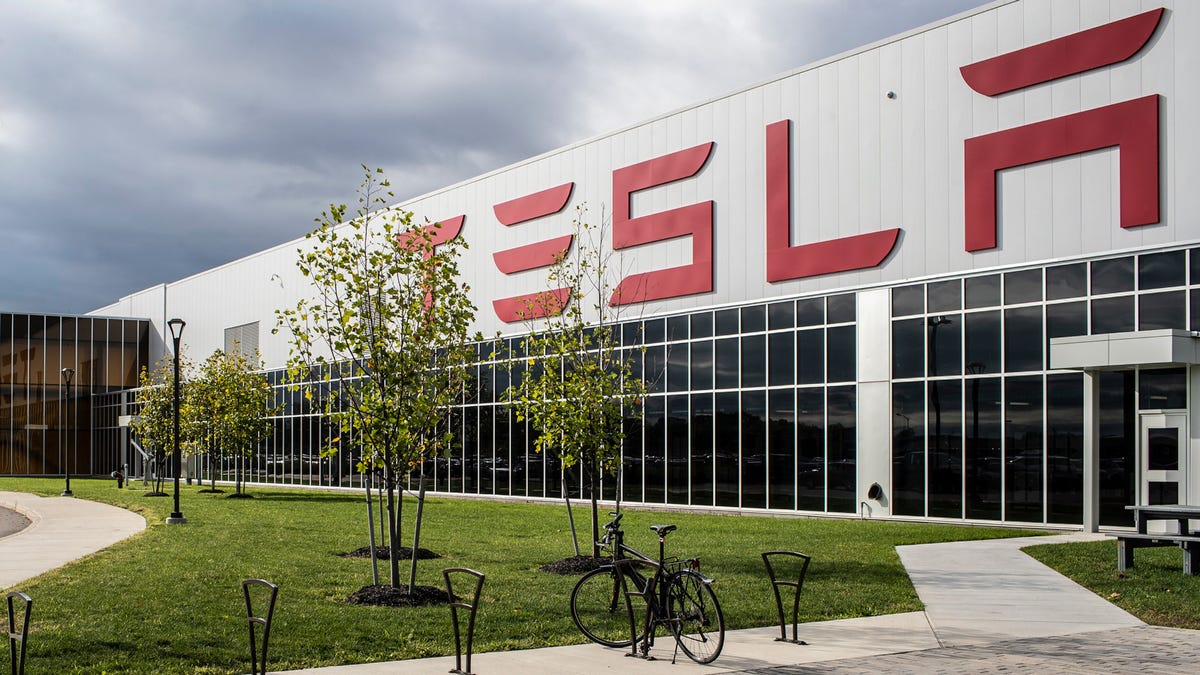It’s a tale as old as time: Hotshot startup lures careless politician into flushing a prospective facility with tons of cash to revitalize a once-proud manufacturing town. Today’s startup, Tesla; the politician, disgraced former New York Governor Andrew Cuomo; and the town, Buffalo. Gigafactory New York, as it’s called, was once tapped to produce enough solar-panel shingles to roof 1,000 houses per week and create 3,000 jobs, with 900 of them being manufacturing positions.
Six years since opening, weekly output is averaging closer to 21 roofs, and more than 40 percent of employees on site in Buffalo analyze Autopilot and Full Self-Driving data. What happened?
Wall Street Journal has the full story, and it’s worth a read. New York poured nearly $1 billion in the facility prior to April 2017, by which time SolarCity — the shingle producer Musk sat on the board of, part-owned and later folded into Tesla — was $3 billion in debt. Today, Tesla employs 1,700 workers on site, which the company must do in order to avoid $41 million in annual penalties from the state. Again, many of them don’t work on the solar panel production line. Courtesy WSJ:
In Buffalo, the state spent cash to build the factory, instead of offering tax abatements that stretch out over years. Cuomo, a Democrat, billed it as the centerpiece of what he called the “Buffalo Billion.”
“In building and equipping the Tesla solar-panel plant, the state became a direct investor in that project under the worst possible terms,” said E.J. McMahon, founding senior fellow at the Empire Center for Public Policy, a fiscally conservative think tank. “In terms of sheer direct cost to taxpayers, this may rank as the single biggest economic development boondoggle in American history.”
Rather than the high-tech factory workers the state intended, more than 700 of those working at the site are data analysts who review “real-time driving data that trains the AI” for Tesla’s autonomous-vehicle software, the company reported to the state in February. Others assemble components for vehicle-charging stations and backup switches for battery systems. “Tesla continues to manufacture Solar Roof,” Tesla reported about the solar-panel shingles product, but it provided no specifics.
Empire State Development, the state agency overseeing the subsidies, doesn’t keep track of what is being produced at the Tesla factory, or any others the state has supported, said a spokeswoman, Pamm Lent.
Tesla’s deal with the state requires it to stay in the factory, for $1 a year, through 2029.
The timeline started with big numbers: up to 10 gigawatts of power from a 5,000-strong workforce. Not only did neither ever come to pass, but the targets have only dwindled in the years since. Buffalo even started a training facility to prepare graduates specifically for these local jobs. They’re leaving school prepared — only, to work somewhere else:
To prepare for Tesla’s arrival and a wave of solar-manufacturing jobs, Buffalo built a $44 million training center on the city’s economically disadvantaged East Side. The training center, which has graduated about 500 people in its four years of operation, has sent about 20 people to work at Tesla, most of them as equipment-maintenance technicians, its executive director said.
Thirteen students have graduated from a separate solar-manufacturing training program started by Buffalo’s public schools. A spokesman wouldn’t say how many of them have been hired by Tesla.
It’d be a disservice to spoil any more of this entertainingly disappointing ordeal, though I will leave you with a statement given to the Journal on Cuomo’s behalf:
The former governor’s spokesman defended the project, saying the factory site has more jobs on it now than when it was an empty lot where a steel mill once stood.
Read the rest at The Wall Street Journal.

